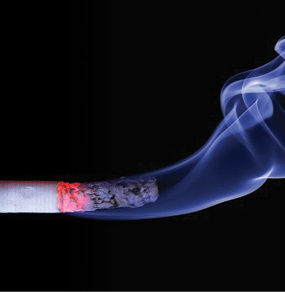Report: Poor diets, alcohol and tobacco use, physical inactivity, obesity linked to early-onset cancers
At 36, Margaret Bowling had a great life ahead of her. Then, her breasts started hurting. She got a mammogram in 1990 and the results were negative. But the pain didn’t stop. She went back six months later for another mammogram. It found cancer in her right breast. She had an immediate mastectomy. Six months later a mammogram found cancer in her left breast. She had another mastectomy.
“Margaret had a highly invasive type of cancer,” her sister Alima Muhammad told The Final Call. “She died four years later after having both breasts removed. The cancer came back. In those days they said young people didn’t get cancer. But that’s not true.”
New research from BMJ (British Medical Journal) Oncology found that increasing numbers of people under 50 worldwide are being diagnosed with cancer. The number has risen by nearly 80 percent in three decades, according to the largest study of its kind. Between 1990 and 2019, the number of instances of early-onset cancer worldwide rose to 1.82 million, while the number of cancer deaths among persons in their 40s, 30s, or younger climbed by 27 percent. According to the report, more than a million people under 50 die from cancer every year.
Years after Margaret died, Alima was diagnosed with breast cancer. It can be hereditary. Their aunt had breast cancer too.
Today, Alima Muhammad is a 25-year cancer survivor.
“Cancer used to be an old White person’s disease,” Ms. Muhammad said. “Many young Blacks have gotten cancer. Singer Bob Marley had cancer in his toe but refused amputation due to religious reasons. Chadwick Boseman died from colon cancer at 43. He secretly battled cancer for years. Singer/songwriter Syreeta Wright, also the former wife of Stevie Wonder, died at 58 after a long battle with cancer.”
Researchers are in the early stages of understanding the reasons for the rise in cases of people under 50. The new report found that poor diets, alcohol and tobacco use, physical inactivity and obesity are likely to be among the factors.
“Since 1990, the incidence and deaths of early onset cancers have substantially increased globally,” the report says. “Encouraging a healthy lifestyle, including a healthy diet, the restriction of tobacco and alcohol consumption and appropriate outdoor activity, could reduce the burden of early onset cancer.”
Dr. Safiyya Shabazz is the owner and medical director of Philadelphia’s Fountain Medical Associates, a primary care medical practice. She told The Final Call, “The factors that are most obvious for the rise in cases have to do with lifestyles that have changed. In fact, one of the most striking things in the study is that the increases in cancer were more dramatic in higher resource countries, like the U.S., where there was more access to things like food, alcohol, and tobacco. Obesity is another major factor.”
The study examined new cases, deaths, health outcomes, and contributing risk variables between 1990 and 2019 for people aged 14 to 49. The study revealed 3.26 million new cases of cancer were diagnosed in people under 50 in 2019, a 79 percent rise from 1990. Breast cancer was the leading cause of both cases and related deaths worldwide, with 13.7 and 3.5 cases and related deaths per 100,000 people, respectively.
Based on these trends, the study found genetic factors were likely to have a role in the rise of cases. However, diets high in red meat and salt and low in fruit and milk, along with alcohol and tobacco use, are the main risk factors underlying the most common cancers among those under-50s, with physical inactivity, excess weight and high blood sugar contributory factors, according to the data.
Dr. Shabazz agrees. “General excess is a problem, people have higher consumptions of red meat, animal protein and higher consumptions of alcohol and tobacco. If we look at American culture, alcohol has become the classy thing to do, to drink more alcohol. It’s been promoted as a health tonic of sorts, something that’s good for your health, fun to do and something that people who have a lot of class and style, drink alcohol,” she said.
“People seem to be completely unaware that alcohol is a clear risk factor for cancer, a good many types of cancer. For women in particular, breast cancer is absolutely associated with higher alcohol intake. Obesity is also associated with high risk of breast cancers, which is one of the cancers that the study found increasing in younger people.”
In addition to the age factors in cancer, there are also racial factors. The CDC found that compared to members of other races, Blacks and African Americans have higher rates of getting and dying from many kinds of cancer.
- Black people have the highest death rate for cancer overall.
- Black people have a lower overall five-year cancer survival rate than White people.
- Black people are more likely than White people to be diagnosed with female breast, lung, and colorectal cancers at a late stage. Cancer is harder to treat after it spreads from the place where it started to other parts of the body.

The CDC advises staying away from tobacco smoke, keeping a healthy weight, and drinking little or no alcohol.
That’s similar to the Teachings of the Most Honorable Elijah Muhammad in his book “How To Eat To Live,” books one and two.
“We have been taught in ‘How To Eat To Live’ the best health interventions to protect ourselves against disease. The absence in people of the Teachings of the Most Honorable Elijah Muhammad lead to the factors that seemed to be most related to this increase in cancers among younger people.
I hate to sound repetitive, but people should stick to the basics to minimize the risk of these cancers. Learning to eat to live, being very modest in their intake of animal protein and avoiding poisons to the body like alcohol and tobacco,” Dr. Shabazz said.
“They should be very generous in their intake of fresh fruits and vegetables and, making sure they’re getting adequate physical activity. Most adults should be getting 150 minutes per week of moderate-intensity physical activity. That means for 30 minutes, five days a week, you’re slightly out of breath.”
These warnings are not new information.
“I think most people are aware that it’s not the best thing for your health to carry excess weight,” Dr. Shabazz said. “It’s not the best thing for your health to eat a lot of red meat. It’s not the best thing for your health to smoke. These things are not news, but maybe we’re really not appreciating the impact, or just how important it is or how much is at stake for our lives and health.”













